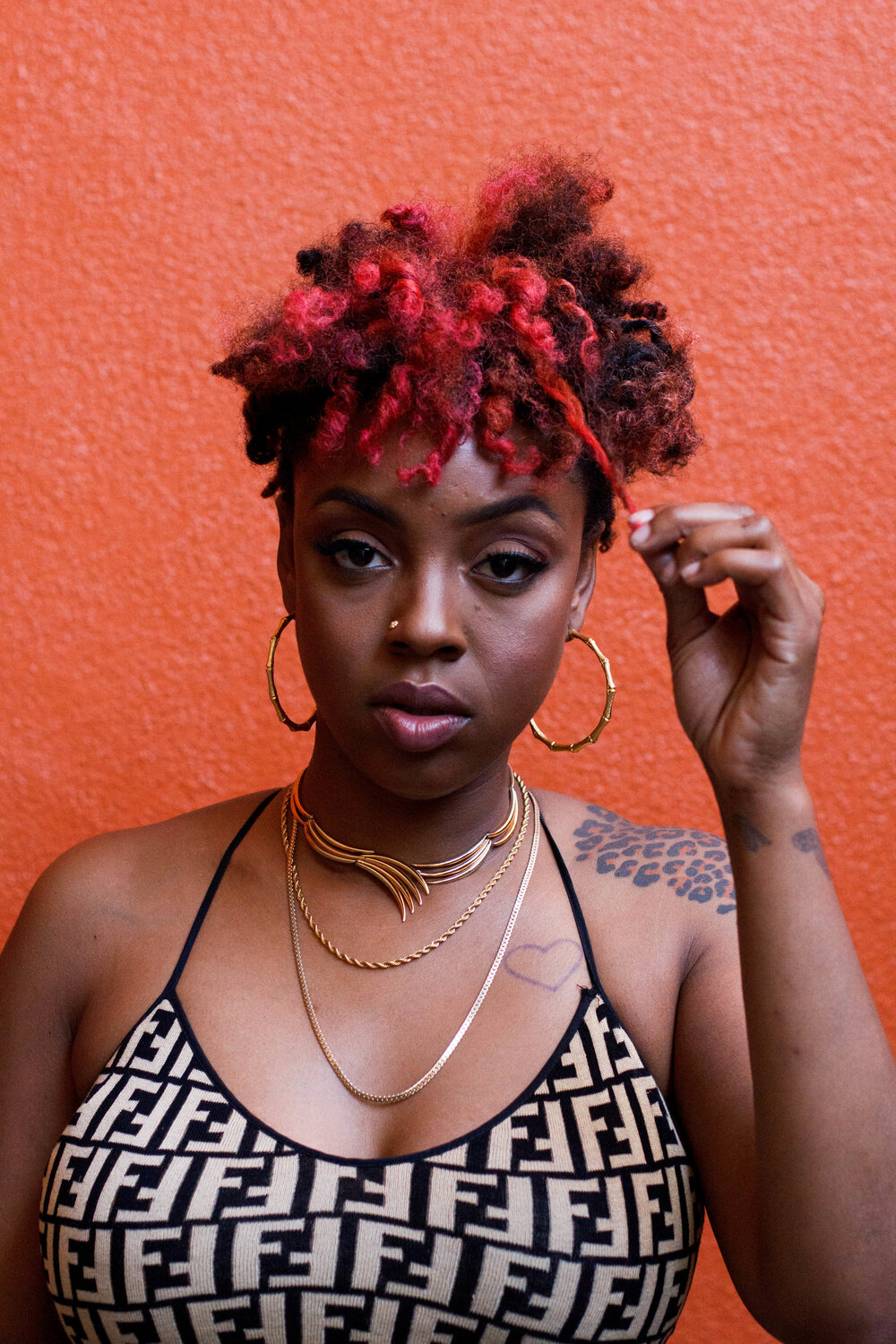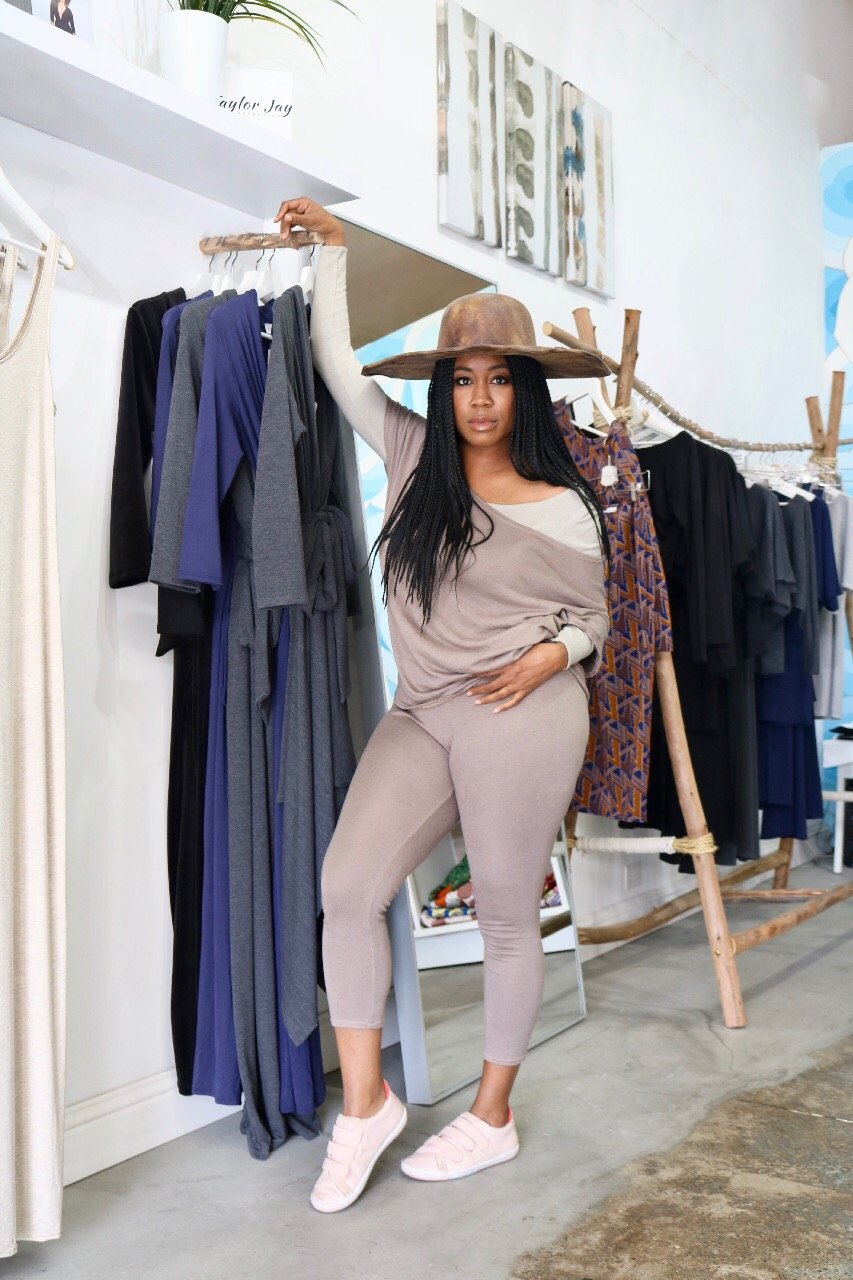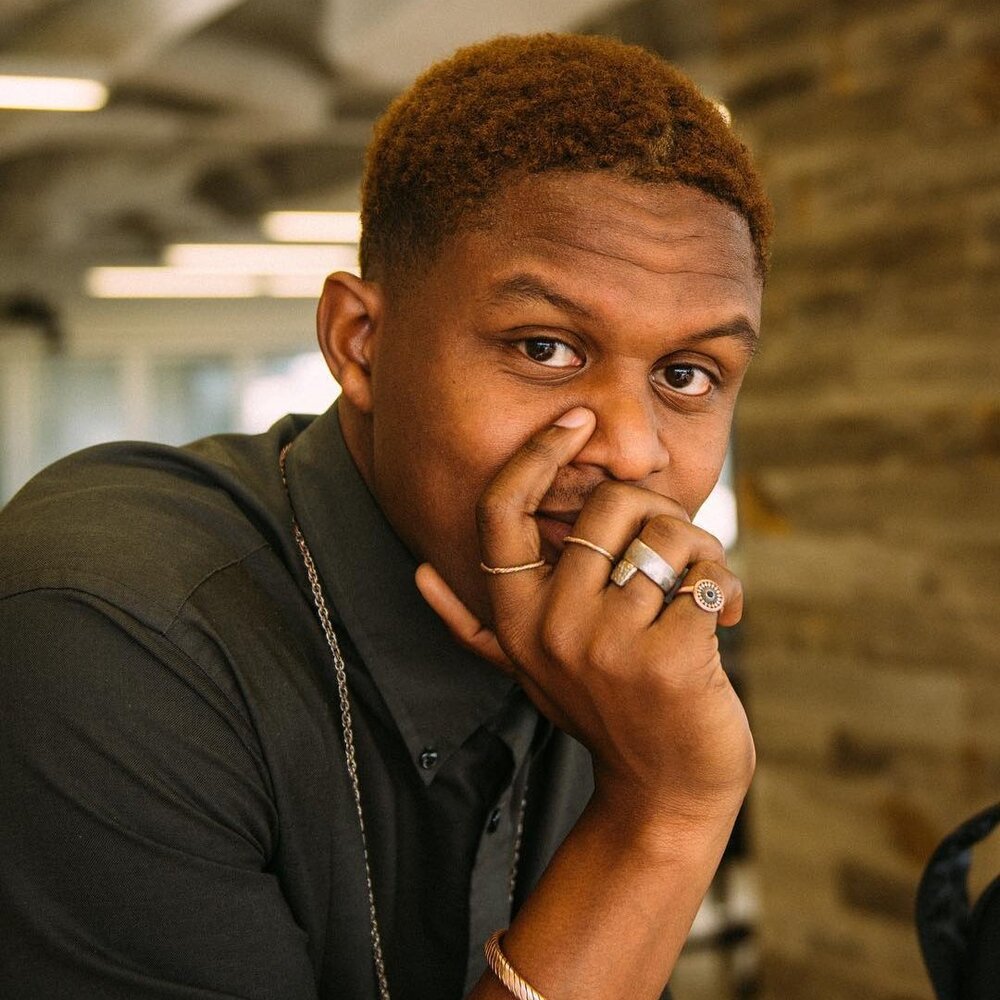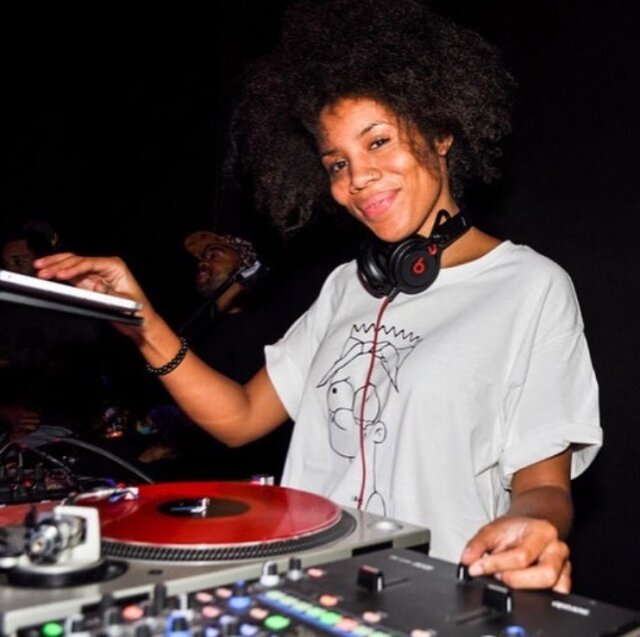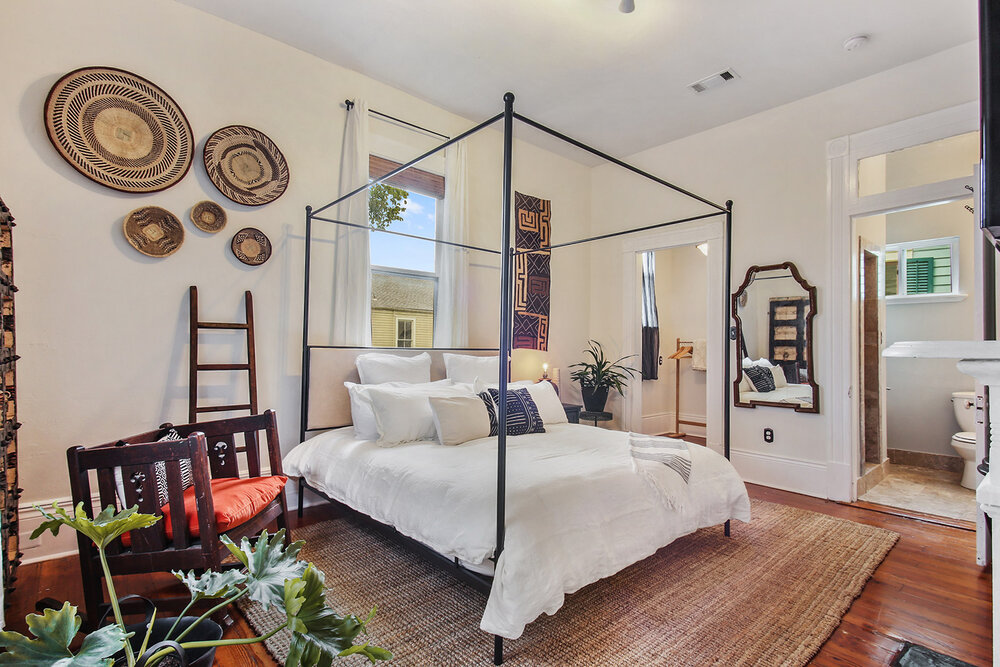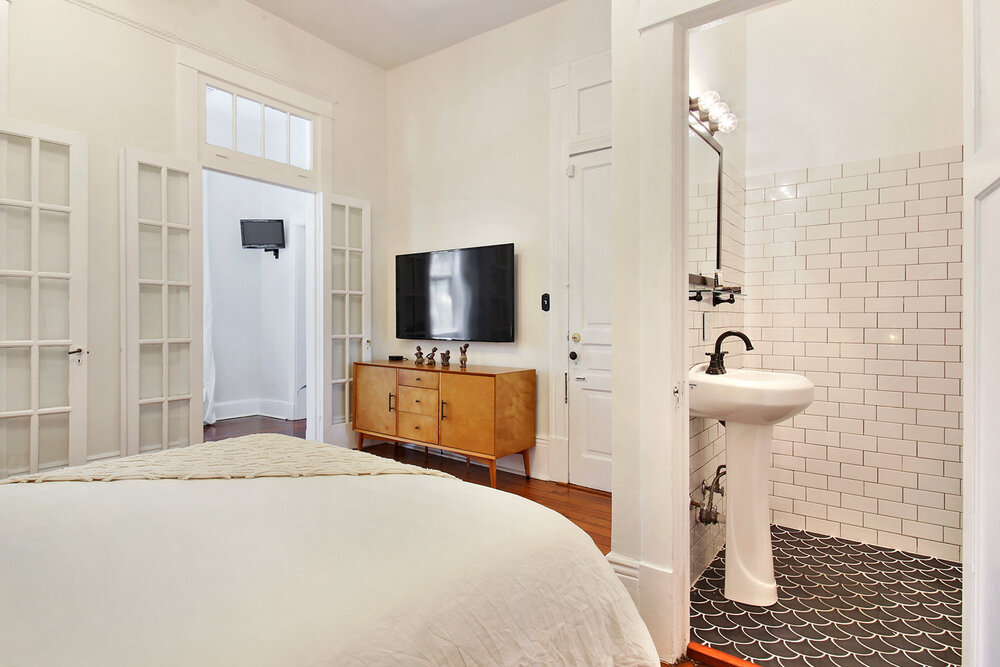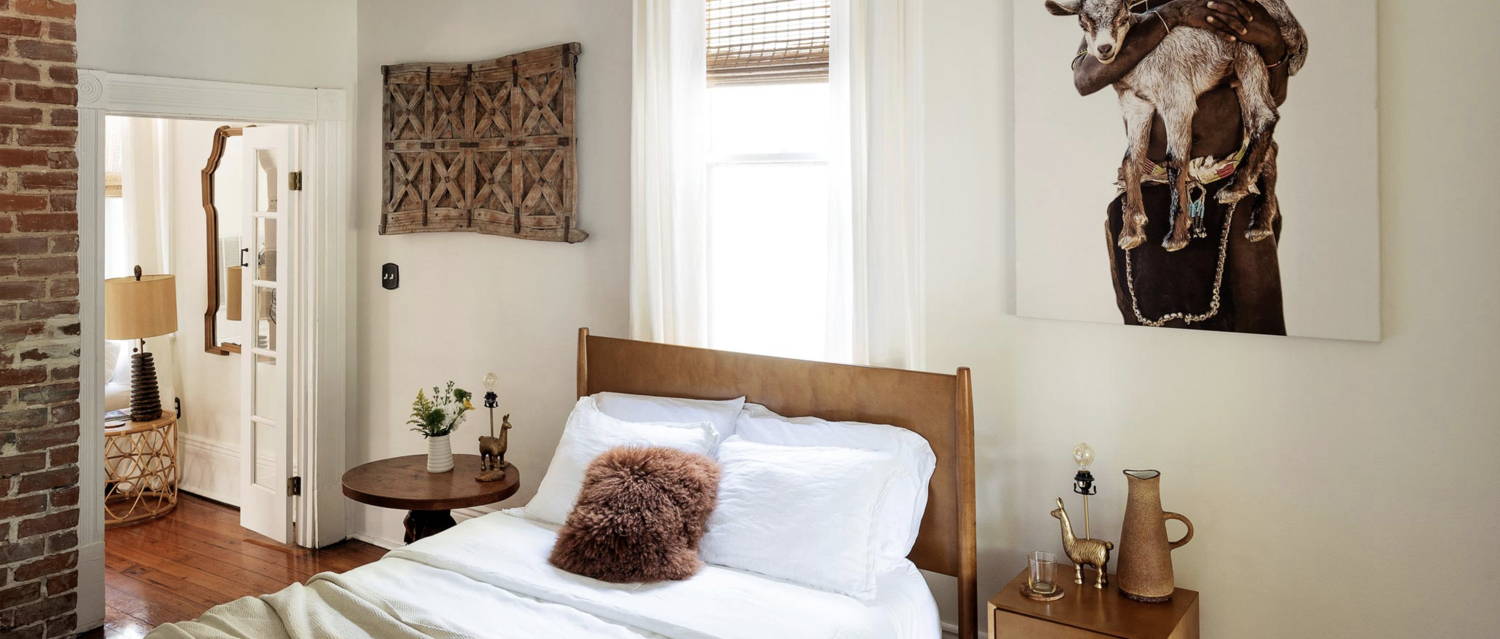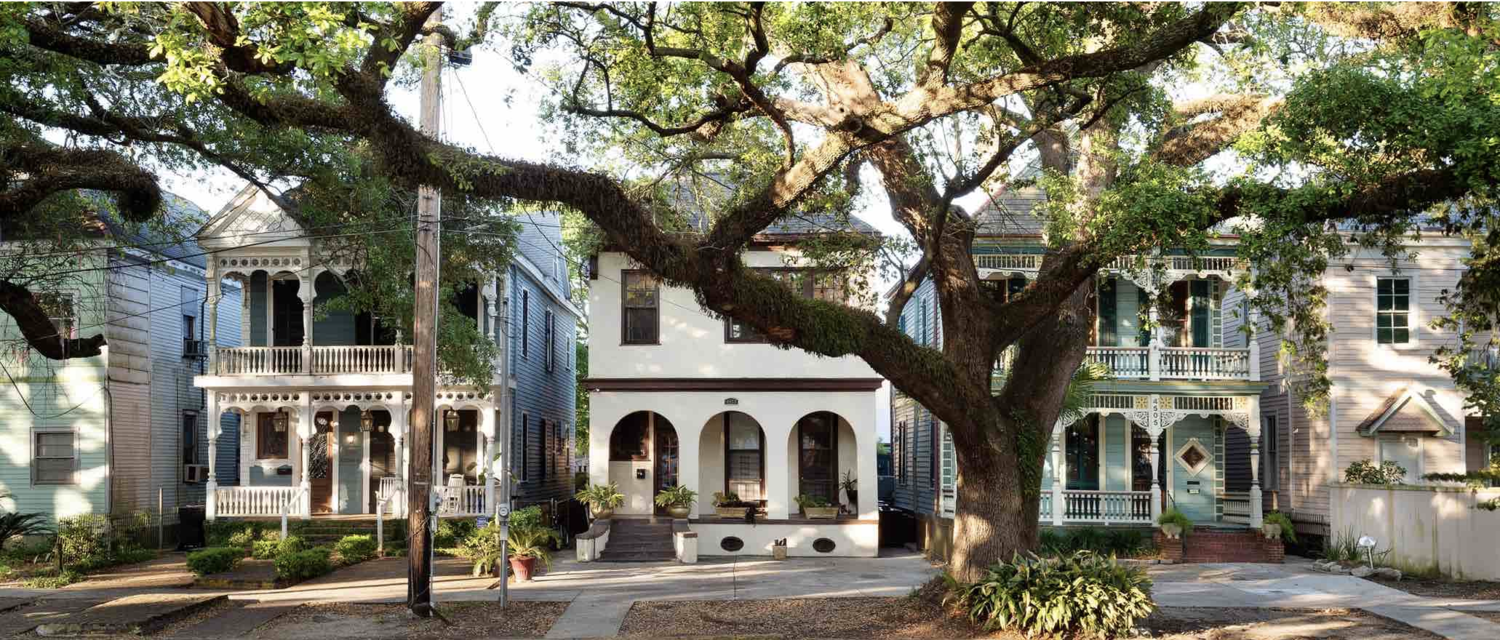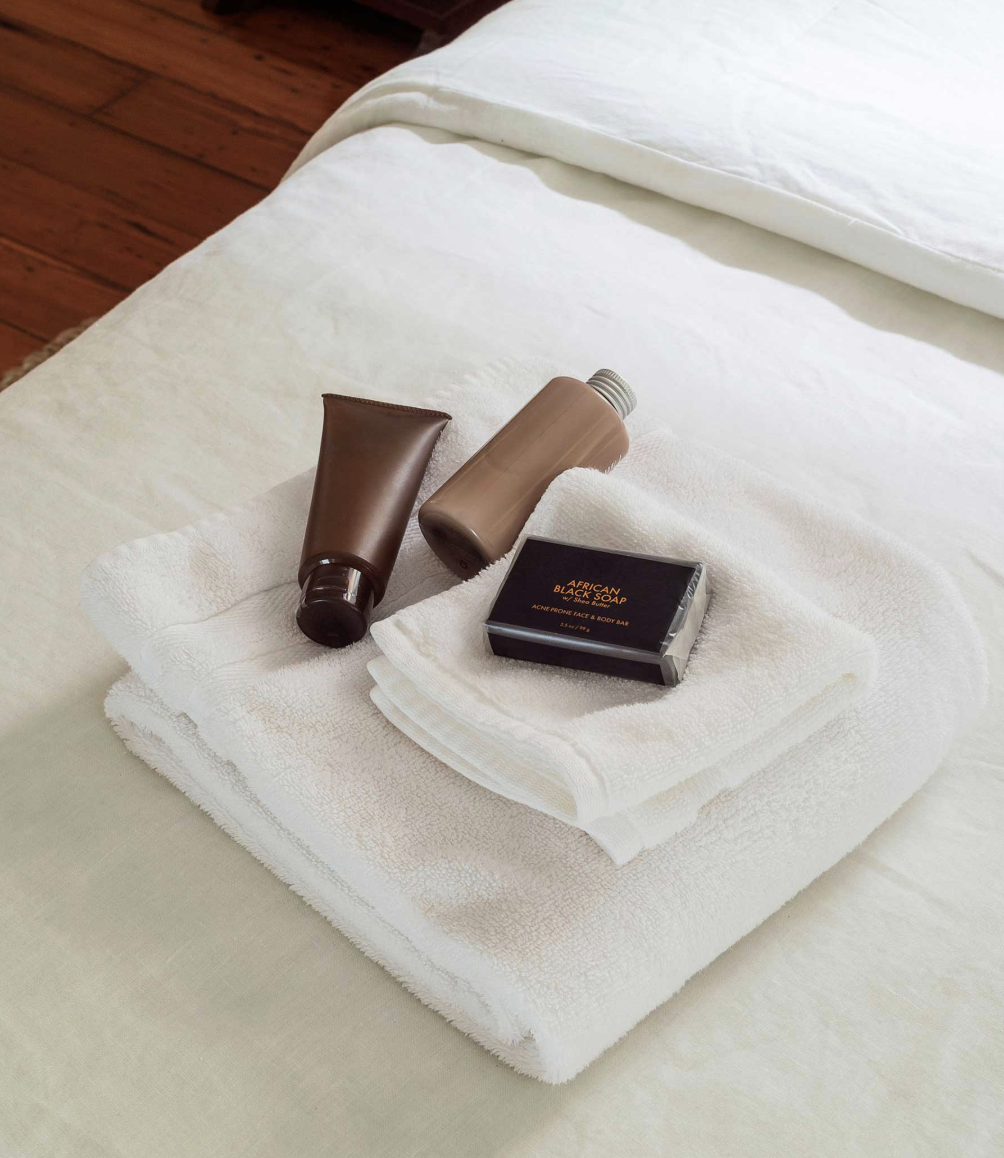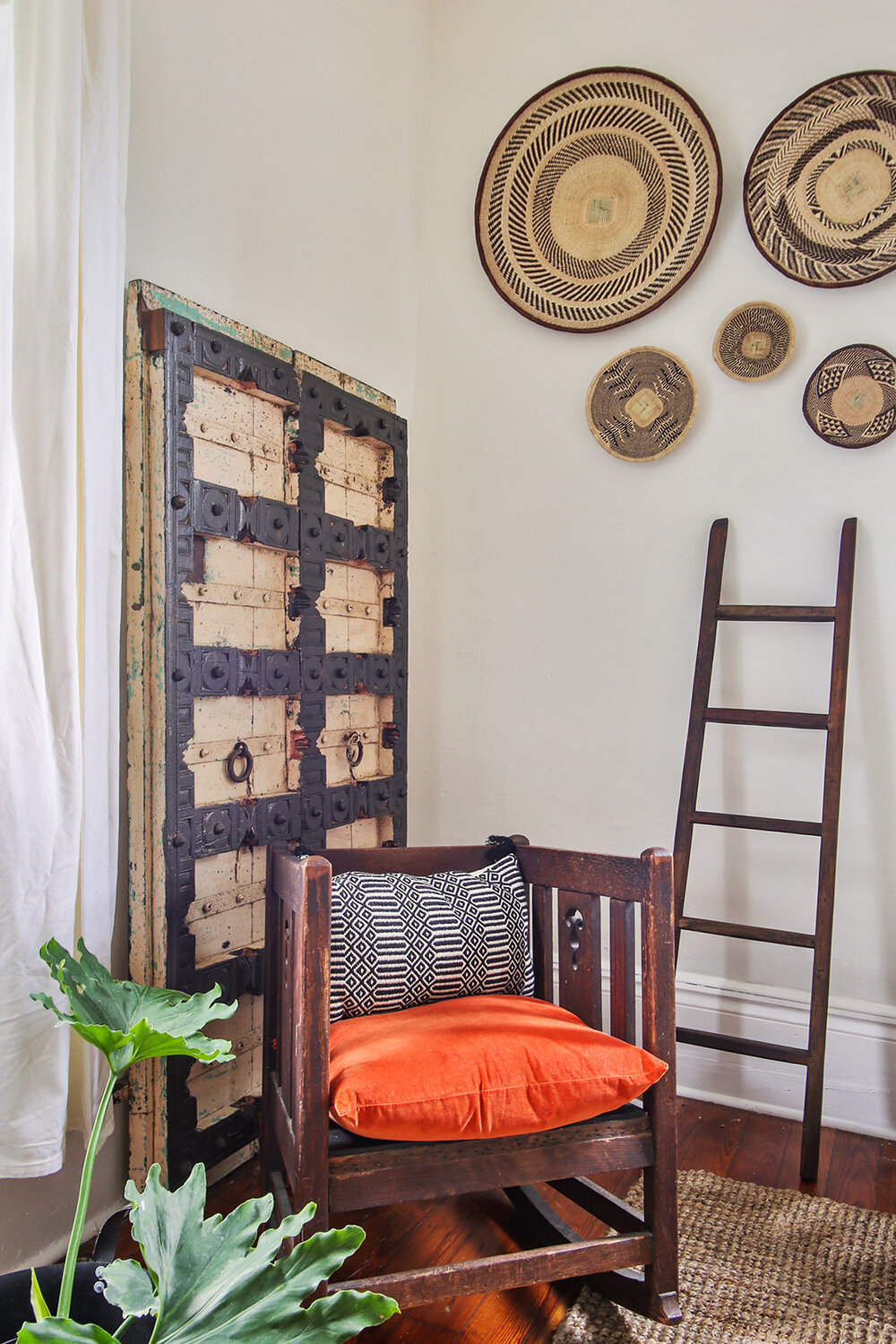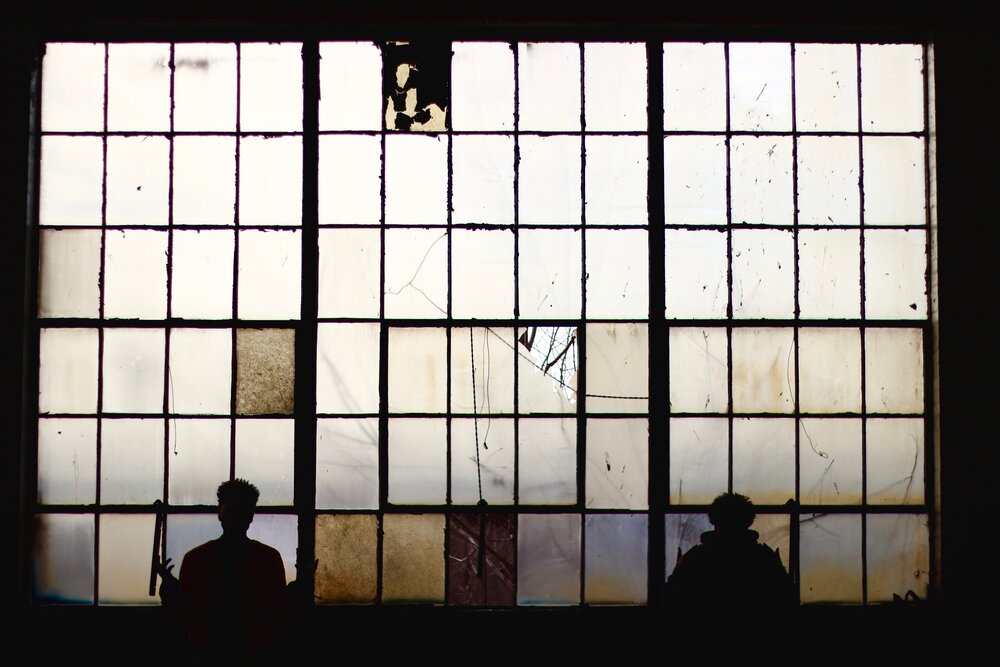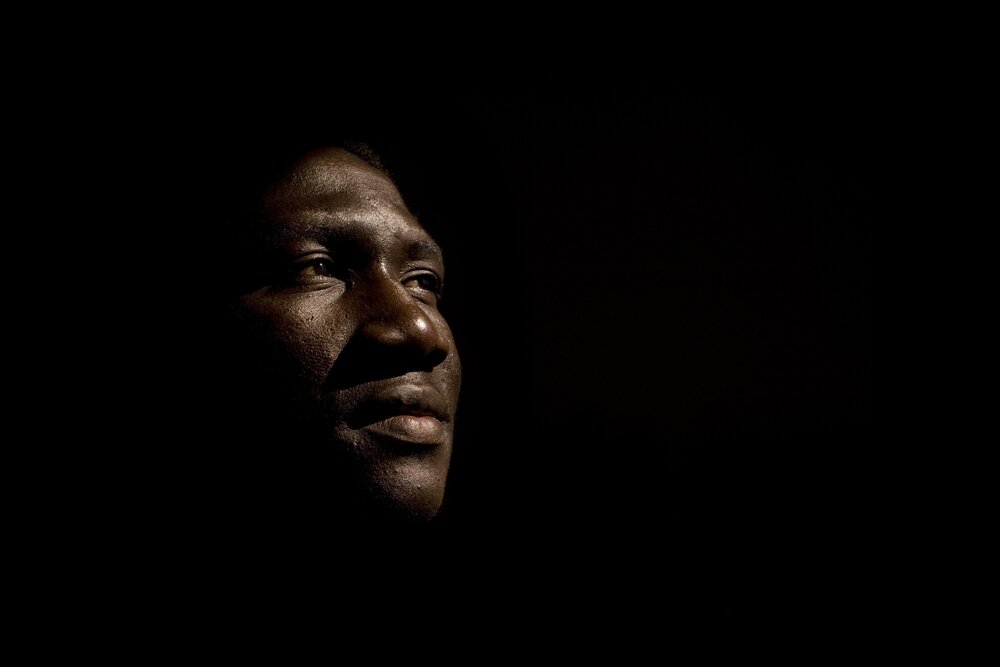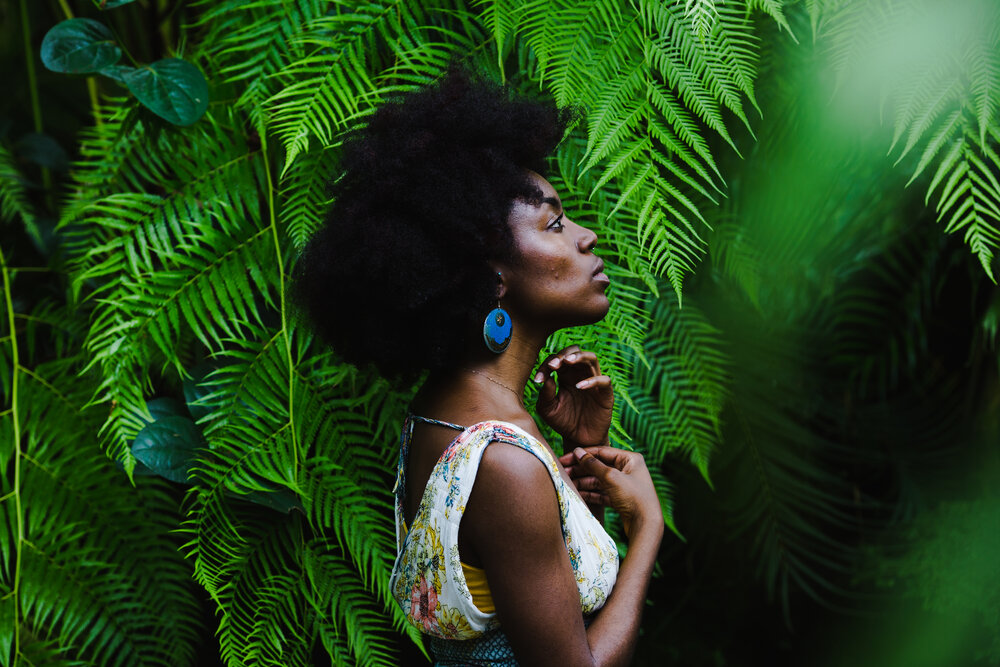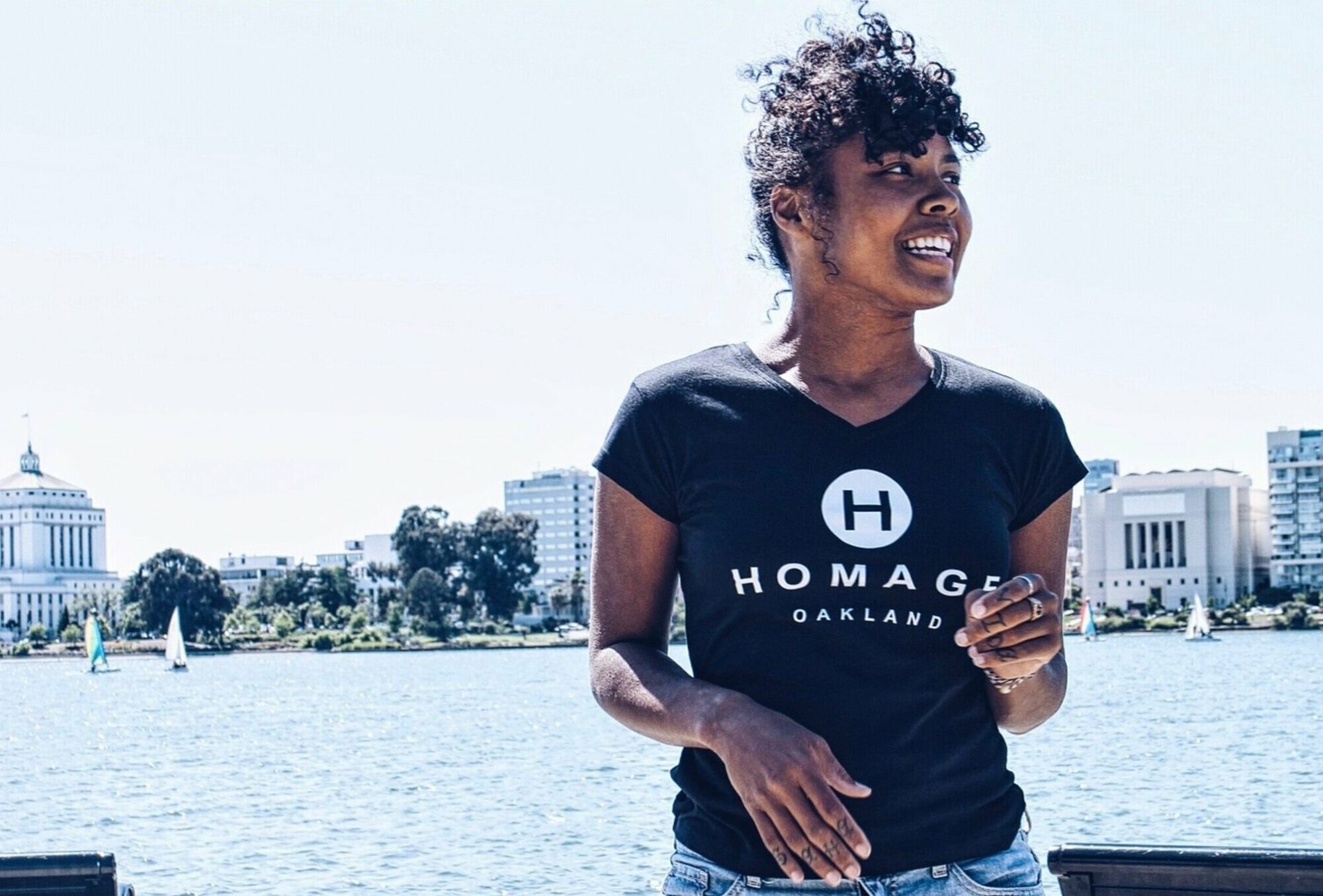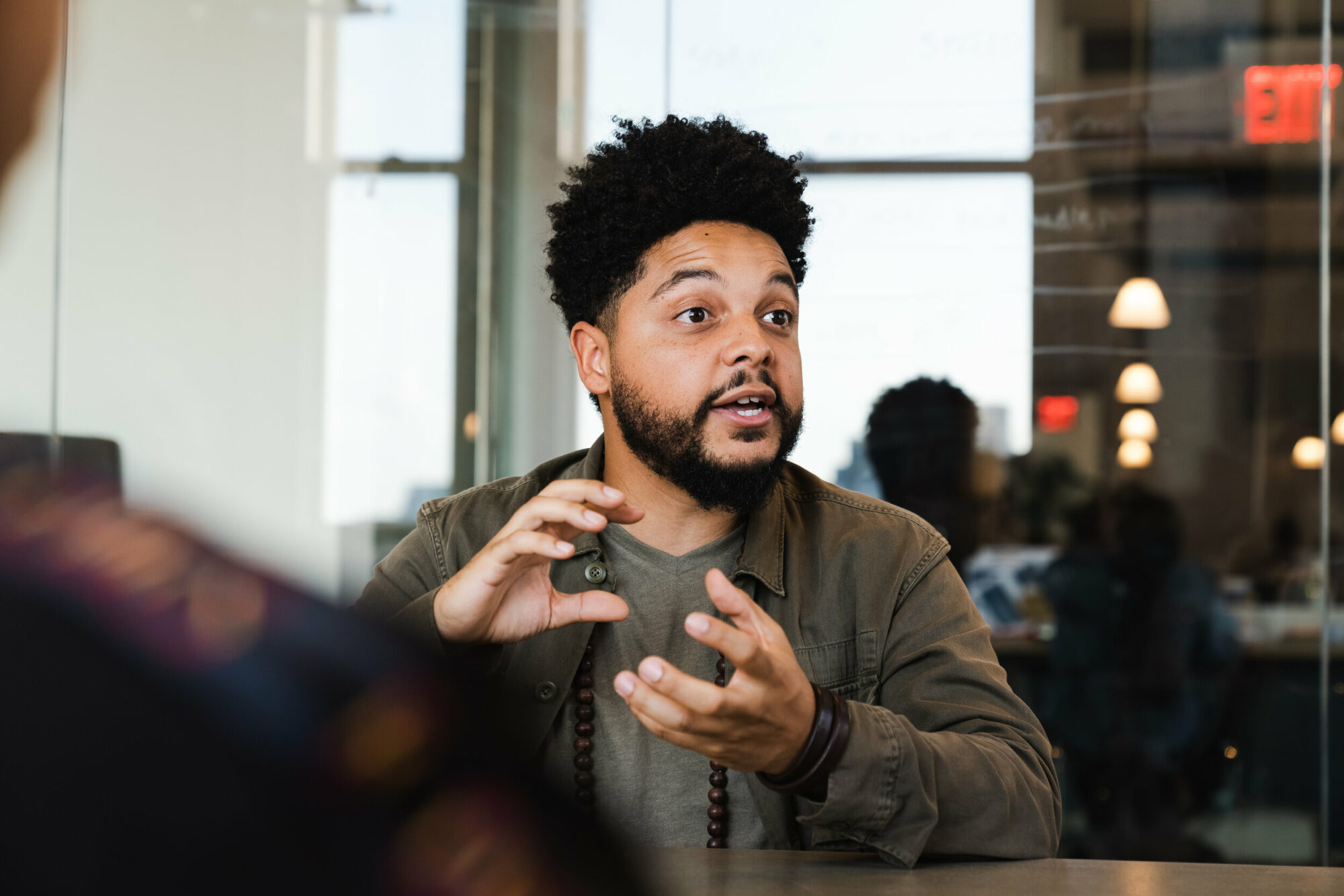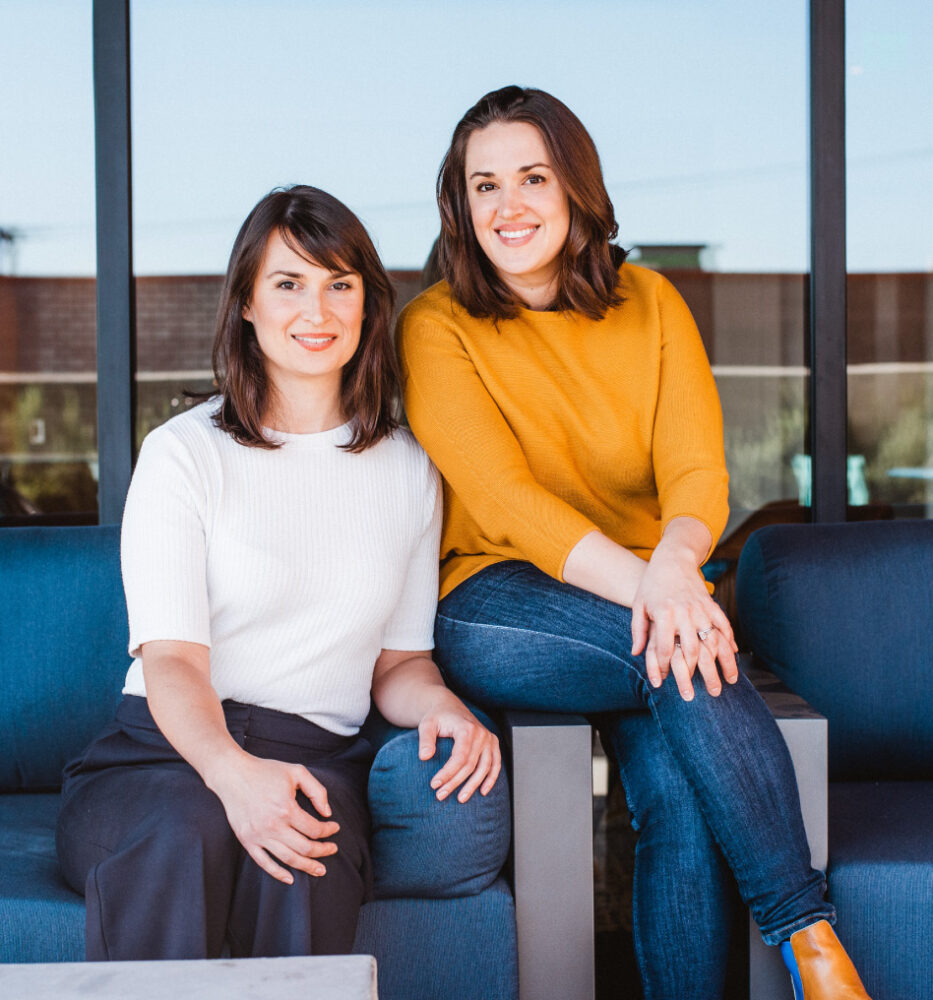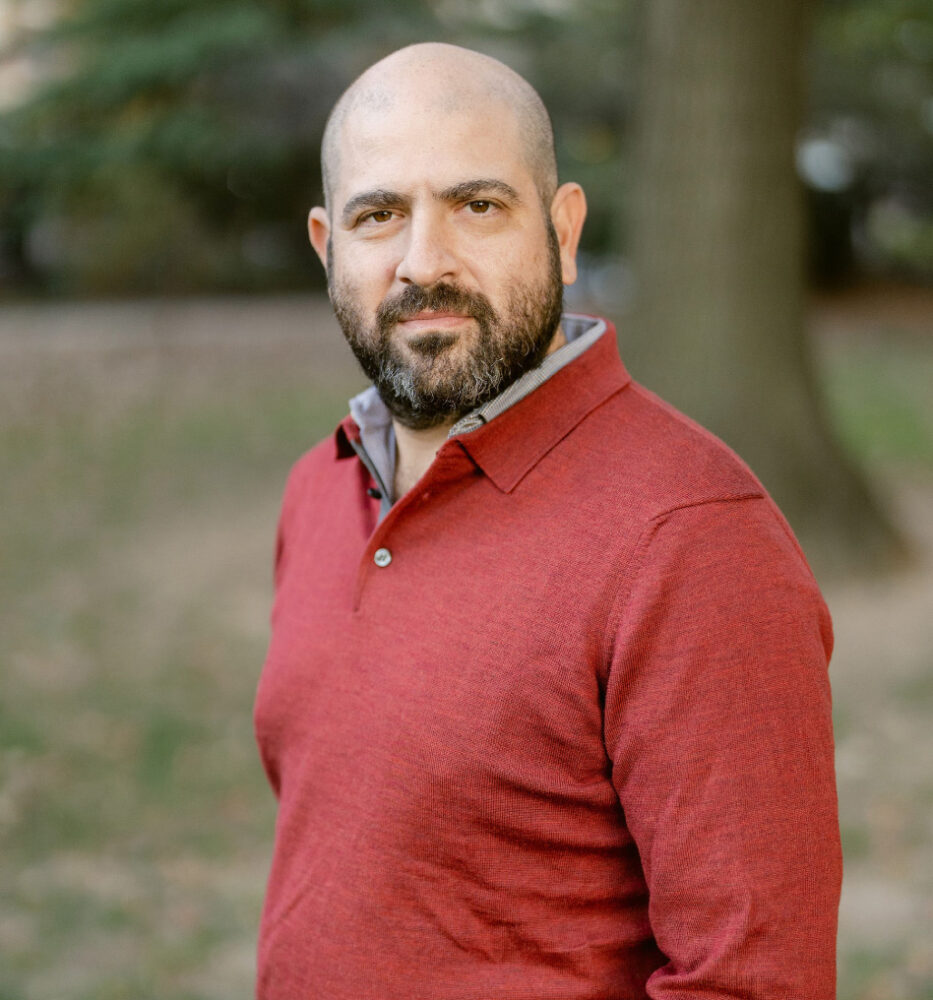Future Hospitality
podcast
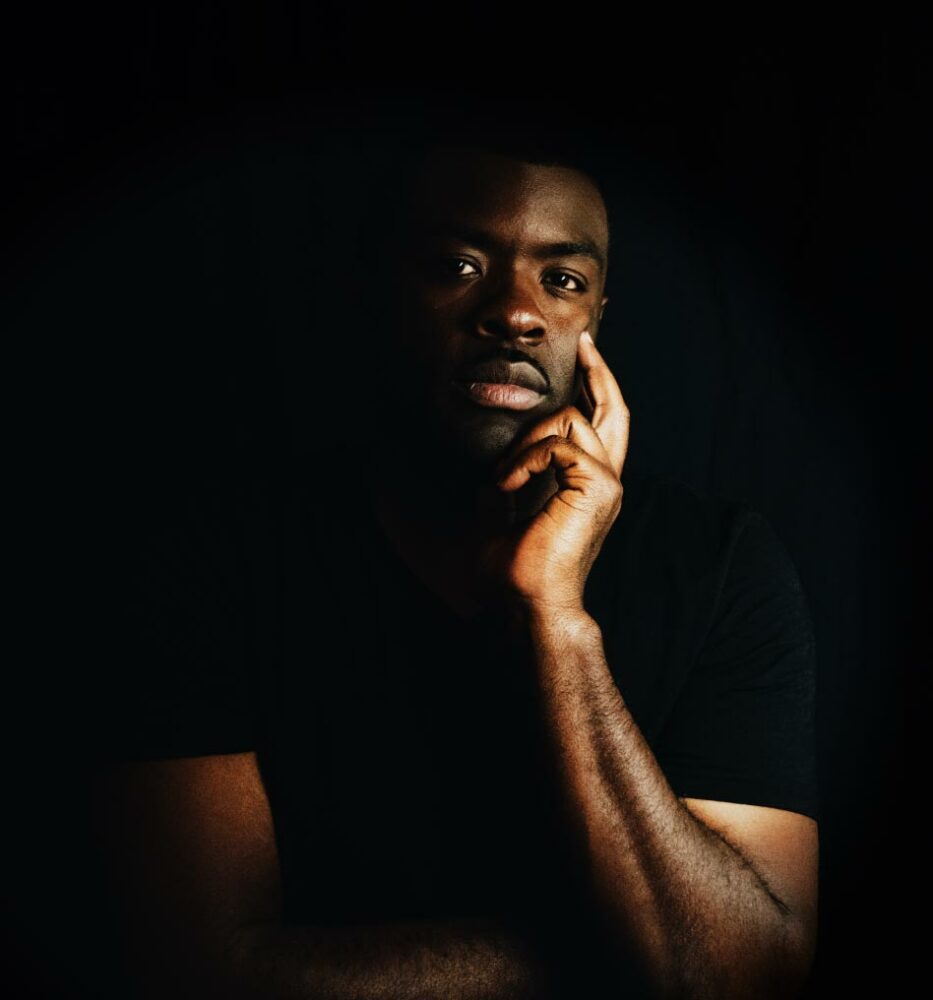
#24: Paying Homage Through A New Kind of Hospitality: Damon Lawrence
March 15, 2021
Jeremy Wells: Damon, thank you so much for joining us today. We’re so excited to have you on the podcast.
Damon Lawrence: I’m super excited to be here. So thank you, Jeremy, for allowing me on.
Jeremy Wells: Yeah, definitely. Yeah. I’ve been following you, kind of sneaking around, following you around all the different blogs and different podcasts and different publications you’ve been involved in and kind of stalking you a little bit. So I hope you’ll be okay with that.
Damon Lawrence: Yeah. No, I appreciate it. I appreciate it.
Jeremy Wells: I love what you’re doing and your passion behind it. And so I’m excited to kind of learn more about what you guys are doing at Homage Hospitality. But before we do that, for the listeners that might be listening to this that aren’t familiar with you or your brand that you’re working on, I’d like to learn a little bit more about the journey and your path that’s taking you from where you’ve been to now where you’re at with Homage and what that journey has looked like in the hospitality and hotel industry especially.
Damon Lawrence: Yeah, definitely, definitely. I’m excited to talk about that. I try and make it brief as brief as possible, but I started my hotel career while I was still in college. So I was at Howard University in DC and I needed a job and it was like my last year. I needed a job just to pay the bills, extra money, started working at a gym and I didn’t like it. And then I was looking for another job, I was like, “Oh, there’s this new hotel that’s opening, a boutique hotel.” This was on Craigslist. So I was just scouring on Craigslist. And they had a really interesting description. I applied and it was a Thompson property and it was the first Thompson property outside of New York and LA.
I thought it was an interesting opportunity. I applied, had the interview, wowed on the interview, and then got the job and it was a brand new hotel boutique, about 150 rooms, really cool design. It was called the Donovan House. It opened me up to a whole world of hospitality that I didn’t even know existed. So like so many other people, I just fell into it by mistake. I didn’t go to hotel school or outside of school or anything. And then from there, the day that I realized that I wanted to actually own hotel was Obama’s first inauguration. So I’m working at the front desk and there’s like a myriad of celebrities that are staying with us. We had all the Bad Boys staying with us. We had all of the MTV disc jock, video jockeys at the time staying with us. We had Seal and Heidi Klum. Spike Lee was over here. Alfre Woodard is over here. It was just a really eclectic group of people that were all converged upon our lobby.
“… We had so much culture in that room.”
I think one of the interesting things was we had so much culture in that room. I mentioned Spike Lee, there were others relevant in sports, media, entertainment, and then we’re celebrating the first black president and what that means. And I was just amazed that we’re doing all of this in a city that’s called Chocolate City. But the building and the space in which we’re doing it in was not owned by someone black. And I thought that, “Man, this would have been an interesting opportunity and how different of an experience would it have been if that were the case.” And so from that point, I was like, “This is what I want to do.” So I started doing research, trying to figure out if there was somebody else that looked like me that was in this space that had a brand or a boutique brand that I didn’t know about. Was there any rapper who had invested in a hotel that I didn’t know about? And I couldn’t find anything. And all I kept finding was these historical references back to the Green Book era of all these hoteliers from the 1800s and the early 1900s that created spaces just for black people to feel safe and comfortable.
“Well, then I’m just going to pay homage to that and I’m going to keep in mind that legacy of creating spaces, safe spaces and what that means.”
So that’s where even the name came from. It’s like, “Okay, if I don’t have anything current that I could use and say, ‘Oh, this is what I’m going to model or this is the role model, this is the trailblazer for me to follow after.’ And I had to look at these historical references.” I said, “Well, then I’m just going to pay homage to that and I’m going to keep in mind that legacy of creating spaces, safe spaces and what that means.” And that’s where I even got the name. And so that was, what, 2008. And so from that point on, I just kept taking jobs that would allow me to learn as much as possible and get a firm understanding the full hotel business. So I worked at a Ritz-Carlton. I worked for IHG. I worked for a couple of small, independent boutiques. I worked for even a motel for a period of time and just took every opportunity to learn the industry until 2016 where I officially started Homage Hospitality.
From that point on, we opened up a small property in New Orleans called The Moor. It was a four-room property. We use that as our proof of concept, really get the brand out there. New Orleans is a perfect backdrop for our brand because there’s so many authentic stories we could tell. We had a partnership, a marketing partnership with Airbnb that did really well. We had commercials and primetime commercials and billboards and a bunch of different markets with me and my co-founder. And then the pandemic hit. Right? And so then we had the summer of protest last year and that brings us all the way to today where we’re building out a pretty healthy pipeline of properties now even through the pandemic. So we’re pretty excited about that.
Jeremy Wells: That’s really cool. That’s so awesome to hear that journey. I think like you just mentioned, a lot of people that are doing really groundbreaking and innovative things in this industry, like you just said, kind of fell into it by accident almost and it just kind of snowballed into where they are today. And I think it’s really cool to hear how you just, along the way, decided to pivot your career and focus on a passion that was building in you. So that’s really cool to hear that.
Damon Lawrence: Yeah.
Jeremy Wells: Yeah. Just to kind of back up a little bit too, for people that might not be super familiar with what Homage Hospitality is, what’s kind of like the elevator pitch of Homage and if you had to kind of sum it up and the vision and the story of what you’re trying to accomplish?
“We’re a brand that pays homage to black history and black culture and we use hospitality and hotels as our medium in which we do so.”
Damon Lawrence: Yeah. We’re a brand that pays homage to black history and black culture and we use hospitality and hotels as our medium in which we do so. That’s the real quick, straight-to-the-point pitch. If you were to look at Ace Hotel and what they did kind of celebrating ’90s kind of grunge culture, I think black culture, especially in this country, is so significant. Right? And we’re trendsetters in so many different ways and how can we figure out ways in each individual city to pay homage to that both current and historically.
Dustin Myers: Yeah. That’s a really cool story. So 2008, you have this vision, even come up with the name and then it is in eight years until you have started to see that come into being.
Damon Lawrence: Yeah.
Dustin Myers: While you’re doing those different jobs and learning and gaining perspective, did you ever consider any other options or were you dead set on this? What was that period of waiting like?
“I felt like there was a moment that was starting to bubble up in society that was going to allow for me to make a bigger name now than if I were to wait.”
Damon Lawrence: Yeah, good question. There was a part of me that felt like, especially early on, that I need to become a GM and once I become a GM, then I’ll know everything I need to know and then I’ll be ready. And really what was the pivot or the catalyst for me to just say like, “No, I need to do it now,” is really when the Michael Brown and Trayvon Martin and all that stuff was happening seemed like at the same exact time. And I said, “The timing for me is right now.” And I never really thought about doing anything else. Right? I had never really deviated from what the goal was, always kind of sticking to it. I think what accelerated my process is like I’m young. I don’t have a family. I don’t have kids. And if I’m going to take the chance to do it, let me use my youth to my advantage and not waiting until I’m 35 and being a GM and then now it’s time for me to do it because I felt like there was a moment that was starting to bubble up in society that was going to allow for me to make a bigger name now than if I were to wait.
So I’m really glad that I did that and decided to do that because I think I was spot on. 2016 was a really interesting year. There was like the Walter Scott Case. I’m forgetting the one in Baltimore, Freddie Gray. You got all these things starting to happen all at the same time and stuff was starting to bubble up, it felt like. At that point, it felt like a really good opportunity for me to seize the moment and put this brand out there at that time to build it. And it’s taken me about four years. I’d say I went to college twice because the last four years was really me learning the industry, learning the process, learning how to raise capital and how to have those conversations. That brought us to this pivotal moment where the preparation is now meeting the opportunity.
Dustin Myers: Yeah. I love what you said about using your youth to your advantage. I think that’s just kind of reversing how a lot of people view things, but I really love it. What challenges though with that did you face? Was it hard to get people to trust you? Was it hard to find investment?
Damon Lawrence: Yeah. Good question. I think it was definitely a challenge and a learning curve because I understood operations. I knew how hotels open, how they breathe and live and all the intricate parts of a hotel that make it what it is and make it a successful business. But it’s entirely different when you’re going out raising capital to buy the real estate and the understanding or the knowledge that you need in order to make that happen. I quickly realized, “Oh, this is the reason why no one else is doing this because it’s hard.” It’s hard, especially if you’re trying to create your own brand. That is another checkmark against you because even the banks are looking for that Marriott or Hyatt or Hilton affiliation if you’re trying to open up a hotel.
“… in raising capital, I think for any black entrepreneur, they’ll tell you it’s tough, not just in real estate, but also in the VC capital world”
So that’s definitely a challenge. And in raising capital, I think for any black entrepreneur, they’ll tell you it’s tough, not just in real estate, but also in the VC capital world where we’re really only getting about two percent of venture capital dollars. Right? That’s not because we lack the ideas or lack the creativity or even the knowledge, but we’re still not finding ourselves getting the funding. And when I think about my friends that are tech entrepreneurs and I think about the capital that they need to raise and what that means, it’s interesting because for a hotel, the amount of capital that you need is so much more extensive, right? A tech entrepreneur can probably raise in the lifetime of their company a couple of million and that couple of million towards one hotel deal doesn’t even scratch the surface.
And so I realized that this is a challenge and is going to be a challenge as I move through this process and try and open hotels in different markets is where am I going to get the capital from. So that’s definitely been a hard part of this journey.
Jeremy Wells: Yeah. Definitely. Yeah. I read through your blog posts on your website that kind of detailed your journey up till now. And it seems like as I was reading that, and you’ve already alluded to some of these in our discussion so far, but you’re kind of hitting roadblock after roadblock it seemed. And as a business owner and entrepreneur myself, I understand like a little bit of how those moments really almost feel insurmountable. And so I’m curious, how did you manage to keep going after you were hitting those roadblocks? I know you mentioned some discouragement you’re facing along the way and how you kind of did that, but could you share a little bit more about that?
“keep pushing because sooner or later I’m going to break down that barrier if I just keep pushing and pushing through.”
Damon Lawrence: Yeah. Thank you for that question as well, too. I think for me, what kept me going, as you keep bumping your head and bumping your head and things just aren’t going your way was really the fact that when I look at the world, when I travel, when I drive across the country, I see thousands of hotels. Right? And my only ask especially initially is I just need one. So I know that it’s possible. Right? I know that it can happen, but it’s just me figuring it out and figuring out whatever path and keep prodding, keep pushing because sooner or later I’m going to break down that barrier if I just keep pushing and pushing through.
And then there comes a point too where you’ve invested so much time and so much energy, there was nothing else that I could see myself doing. I pretty much saw myself at a certain point when I really quit my jobs and started working on this full time like, “Who would I work for at this point? Where would I be employable and where would I find any fulfillment if it weren’t for me doing my own thing?” I would pretty much be unemployable. So I think that was what really kept me going and made sure that I followed through. And I’m glad that I did. I think it just takes time when you really believe in something and you’re excited about it. It’s probably taken more time than I thought it would, but I needed to learn everything that I did along the process.
One of the barriers that we had, I might have talked about that New Orleans property, we were excited about it because this was the first time that it had been done or someone is really taken the lens of black history and black culture and using that as the design thread throughout the property and how you program and how you design it. And so this was cool for us to get our name out there. We won up-and-coming hotelier that year. We won a number of awards. We’ve won a Gold Key Award for that property. Not once but twice. And what we realized shortly after that as we went to go do the next one is that that pigeonholed us into being more like this bed and breakfast, small room count property type of brand. And that wasn’t the case at all. We just didn’t have the resources to do much else and felt like this is the opportunity for us to get the brand out there and then grow from there.
And so it quickly ended up pigeonholing us in a lot of ways when you look at track record and that was the thing that you had to point to that wasn’t a full-service hotel. It wasn’t like 80 keys in a top market. And so just all these different things that you think you’re doing the right thing and lo and behold, you might have pigeonholed yourself to a certain extent and how do you get past that and how do you get through that. But all of the entire process, when I look back at everything that we did, it was all worth it. I wouldn’t take back anything, right? Because we needed that property to get our brand out there. We needed to get the awards, probably the highest awarded hotel company with the fewest amount of keys ever. So we needed that to propel our story so that when the real opportunities came we’d be in prime position for it. And I think the beauty in that is we see ourselves in this moment now.
“We’re really just in prime position to scale, to develop in some really cool markets. And I’m super excited about that.”
After COVID, two things have happened. There’s so many opportunities on the market that we can now take advantage of, that discount. So when you talk about raising capital is a challenge, you don’t have to raise as much capital now. And then when that social awakening happened this summer, everyone reached out to me because they knew I was the only one in the hospitality space that was doing what I was doing. Right? So then the opportunities came even greater. There was more that came to us that we didn’t even have to go out and search for because we had just made a name for ourselves in the industry. So we’re really just in prime position to scale, to develop in some really cool markets. And I’m super excited about that.
Dustin Myers: Yeah, that’s really cool. It’s a challenge that a lot of small business owners face is which comes first, the chicken or the egg, and you got to prove yourself before people will invest in you, but you need people to invest in you to prove what you can really do.
Damon Lawrence: Prove yourself. Exactly.
Dustin Myers: So you started small with The Moor and then we’re able to make that transition into larger items that you had originally envisioned. One of the things you’ve mentioned is choosing markets that have untold stories. Can you unpack that a little bit for us and give us some examples of what that means?
Damon Lawrence: Yeah. So I’ll tell you, New Orleans, as an example, right? I think if you go to New Orleans, you’re going to understand the jazz culture. You’re going to understand the music culture that exists. You’re going to see pictures of Louis Armstrong. You’re going to see trumpets and saxophones turned into lamps. You’re going to see all of that reflected, but then even in New Orleans, there was a deeper story that needed to be told. Through our property, what we were looking at was if we peel back the onion and go even a step further, how did it even become the jazz capital that it was? What did that stem from? And can we go back to that history? Right?
So it took time. We had to do a lot of interviews, did a lot of research, and then we quickly realized like, “Oh, the music scene that exists here is a direct link to slavery, a direct link to the fact that New Orleans was home to the largest population of free people of color.” There were ways in which people could buy back their freedom and all these different things that we were learning in the process, things like, “Oh, the music scene here started in what they call Congo Square, which is now Louis Armstrong Park. Right? Congo Square is where slaves were able to go and play their music, beat their drums, dance. You’d see the second lines that exists. That’s where that comes from.
So we felt like there was another layer to New Orleans that wasn’t really being told as to the origins of why things are the way that they are in the city and we had an opportunity to link it back to that. And I think if you go to any of these cities, you go to Detroit, DC, Memphis, all these other markets, where are those stories being told? Right? I’m not talking about a civil rights museum, I’m talking about just the history, the African-American history that exists in these cities and how can you pay homage to that. And even the culture that exists today, right? I think Detroit has a very different culture than Oakland today and seeing that these cities in their trajectory, there’s just a lot of opportunity for us, but we have to become many historians.
“We have to dig deep. We have to spend time in these markets. We need to understand what these markets need.”
We have to dig deep. We have to spend time in these markets. We need to understand what these markets need. Right? There’s a very distinct need in New Orleans that’s very different than Oakland, right? Oakland, we have a homeless issue that’s out of control. So how can we use the hotel to do something about that? And then in other markets, they have different needs, right? So these are all the things that we sit down and think about and immerse ourselves in that local culture and find ways to weave both historical and local and cultural threads throughout the entire life of the property.
Jeremy Wells: Yeah. Damon, you bring up a really interesting point. You have like the historical research that you’re doing in these markets to tell these untold stories. To a lot of people, that’s probably a clearer line of like this is paying homage to these stories that you brought up even like more current events and current culture and things like that and how you can really pay homage to even current culture in these markets. What are ways that you hope to do that? And you are doing that with this brand.
Damon Lawrence: Yeah. I think making sure that we speak to people that are there today. Right? And I think that as we do our research or we do our interviews, it’s different also for each market, and understanding where the city wants to see itself. And I think even if you were to look at Oakland, Oakland looks like a much different city than it did in the past. And it’s come a long way from even this Black Panther history. Right? But there’s still a story of resistance. There’s still a story of the protest and what that means. Right? You have Black Lives Matter that was started by three women from Oakland. Right? And so that’s a direct descendant of the Black Panther Party and what that meant is just changed up and is modernized because we have new needs today. Right?
“We tend to repeat history a lot.”
So just taking all of those things into consideration is important to understand. I firmly believe that if you look into history, you just going to see patterns. We tend to repeat history a lot. And we do it and we do it no good to ourselves if we’re repeating it, but not understanding the history and not understanding what came before us. I think when the pandemic we hit, I look a lot at that Spanish flu pandemic that happened just a hundred years ago. And what happened, how did it kind of materialized, how long did it last, and I looked at all those things very early on like last March. And said to myself, “Okay. We’re looking at probably about two years,” and sell more vaccines and what that’s going to look like.
COVID might be here forever. It might not ever go away just. The effects lessen because the same thing that happened with the flu. We still deal with it every year. What does that look like? And then you had the war ’20s right after the flu pandemic because everybody was so secluded and stuck in their home. And now finally, when everything is all over, businesses booming, restaurants and this is prohibition era. So everything is just rocking and people are figuring out ways to make money and money’s flowing and it’s an exciting time. And so just being able to take all of that stuff into consideration as we look to what’s next in our industry and in each individual market that we’re in.
Dustin Myers: I’m curious which markets are on the horizon for you guys and if you’re able to share any of those timelines or plans around that.
Damon Lawrence: Yeah. I think the one or the two that are the most critical that we’re working on right now at this moment is I’m actually sitting in our Oakland property. So I talked about before, having a property under contract after the New Orleans deal in Oakland and then pandemic hits, we were under contract on this property for about $26 million, super expensive for 92 keys, but that’s just where Bay Area real estate is today. And now we’re back under contract at a 40% discount from that.
Jeremy Wells: Oh, wow!
Damon Lawrence: And so it really worked out in our favor. We’re excited about this project. We’re going to close all of our financing at the end of this month and then we’re going to start redevelopment really soon. So it probably wouldn’t open for another 18 months, but I think that’s a good timeline for us to weigh through the water, so to speak, and get through the tail end of the pandemic. And then we have a really exciting project in Albany, Georgia. It’s an 80-key room hotel that we’re super excited about. We just finalized the management terms just last week and we’ll be announcing that officially over the next couple of days. I even posted some stuff on social media quietly to let people know about that, but those two projects, but then we’re also looking extensively in Baltimore. The Baltimore is a market that I love and I’m excited about. And then we’re looking at Memphis too. I think that that’s also another really cool and exciting market.
I mean, you could probably imagine some of the cities and markets that we would want to enter into. I mean, Birmingham, Atlanta, DC, Harlem, Brooklyn, Detroit, Chicago. All these markets are just really exciting for us and we’re looking forward to looking for properties in those.
Jeremy Wells: That’s really exciting to hear what you got in the pipeline. Awesome. Cool. Well, kind of as we’re wrapping up here, one of the final questions we always like to ask our guests being the Future Hospitality Podcast is to just kind of looking forward into the future of hospitality, travel, tourism. You mentioned some of the things in your pipeline and what you guys are working on, but is there any other things that you’re excited about personally or professionally that’s on the horizon for these industries and your involvement with it?
“I’m excited because I think that travel is going to go back to the basics and our need for travel is going back to what it’s always been and that is experience first.”
Damon Lawrence: Yeah. I’m excited because I think that travel is going to go back to the basics and our need for travel is going back to what it’s always been and that is experience first. I think we’re always going to be from this point forward at least until the COVID-19 shock and all wears off, we’re going to be looking for those rich experiences and that’s what’s going to drive the reasons why people travel. I’m also excited in the fact that I think that Airbnb just in general has created this ripple effect and triple trickle-down effect of causing people to live outside of the typical markets and go a little bit deeper, even sub markets within markets and going into neighborhoods. And I think that that’s really awesome for us, because to be honest with you, some of the properties that we’ll look at are going to be off the beaten path, right? They’re going to be in the south side of the neighborhood. But it’s going to tell a rich story and it needs to be there to authentically touch on the things that that community needs in that story.
And so Airbnb has just allowed people to think differently in how they pick their travel and where they want to be. Uber the same way, right. Location is different now because we have all these other means of travel and getting from Point A to Point B. And I’m just excited because I think we’re about to have another Roaring Twenties, right? Everybody’s talking about what they’re going to do post pandemic. And I see a lot of domestic travel. I think international travel is still going to be weird because what people aren’t realizing is that we are pretty far along with our vaccinations while other places have not and just the social responsibility that comes along with that. And so I think we’re going to be experiencing a high level of domestic travel within the next couple of years. So I think it’s going to be a fun time for all of us independent hoteliers as we find ways to create awesome experiences for our guests.
Jeremy Wells: Yeah, definitely. Well, I hope you’re right about the Roaring Twenties. I tend to be optimistic about it too. So that’s exciting to hear you say that too.
Damon Lawrence: Oh, definitely. I can’t wait. I think that, again, history is going to repeat itself for sure.
Jeremy Wells: Yeah. Awesome. Well, Damon, thank you so much for joining us today and then sharing a little bit about your story and what you’re doing at Homage Hospitality. I am really excited to continue following along and keep stalking you from behind the scenes.
Damon Lawrence: I appreciate it and thank you for allowing me on the podcast and giving me the platform. Yup.
Jeremy Wells: For sure. Thanks, Damon.
Dustin Myers: Thank you, Damon.
Damon Lawrence: Thank you. All right.
